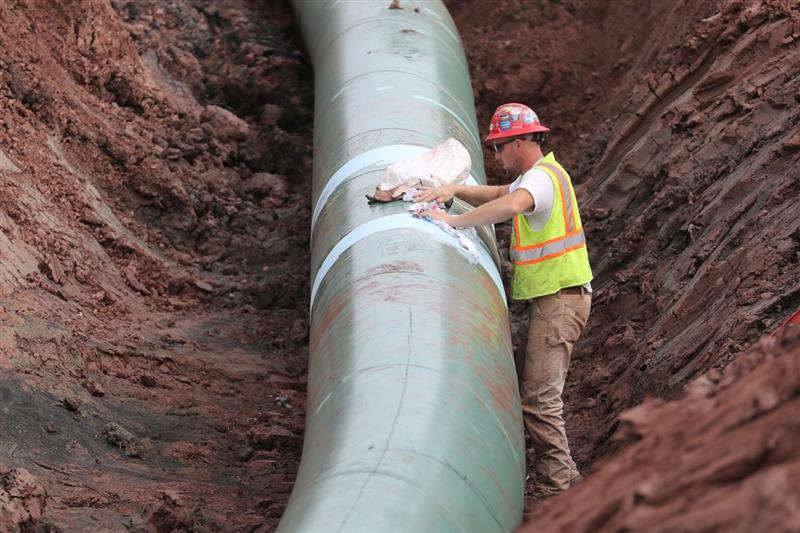Much-needed changes to our nation’s permitting process will fully unlock the benefits Pennsylvania-produced natural gas delivers: energy security, lower energy costs, and continued environmental progress.
Yet attempts to block needed pipeline projects have become so extreme, the U.S. Supreme Court is forced to intervene.
Consider Appalachia, America’s largest natural gas producing region, is cited as one of the biggest players in maintaining domestic production and balancing the global gas market in a world less reliant on Russia-produced energy. But a lack of sufficient pipeline capacity is holding back production.
“Pennsylvania can provide the affordable and reliable energy that our nation and the world needs but permitting red tape and overreaching courts are preventing the development of critical infrastructure to safely move more natural gas to consumers,” Marcellus Shale Coalition President David Callahan told the Center Square earlier this month.
The most glaring example of an infrastructure blockade is the Mountain Valley Pipeline, which – despite its final approval secured by an act of Congress and signed into law by President Biden under the Fiscal Responsibility Act (FRA) – continues to face legal challenges.
Even the Department of Justice called Congress’ language approving MVP “unambiguous.”
DoJ’s comments come at the heels of requests filed by anti-pipeline activists to bog down regulators and the courts. Their hope? Make the process so time-consuming and costly that developers are forced to abandon the project altogether. This was the fate of the Atlantic Coast Pipeline, PennEast Pipeline, and many other infrastructure projects aimed at boosting access to clean, affordable, abundant natural gas.
“Instead of halting the pipeline, I urge the Supreme Court to plug up the ludicrous activism seeping out of the lower court so American families can enjoy lower energy costs, substantial land royalties, and most importantly — law and order in America,” Pennsylvania Congressman Guy Reschenthaler said in a statement.
Unfortunately, this is a problem elected officials, business groups, regulators, and sector experts have warned for years. Here’s what some have to say about America’s chronic permitting problems:
- “The Biden administration’s actions reversing key permitting reforms threaten to delay or derail critically necessary energy infrastructure projects… Investment decisions rely on a consistent and predictable regulatory environment, and continued ambiguity is a barrier to America realizing the economic, environmental and consumer benefits of abundant domestic natural gas.” – MSC President Dave Callahan
- “In the United States, it often takes between five and ten years — sometimes longer — to get critical energy infrastructure projects approved, putting us years behind allies like Canada, Australia, and more recently the EU…It is clear that without comprehensive permitting reform we will never ensure lasting American energy security and independence and will delay progress on environmental goals.” – U.S. Senator Joe Manchin
- “Natural gas—and the infrastructure, such as MVP, that supports its delivery and use—can play an important role as part of the clean energy transition, particularly with broad advances in and deployment of carbon capture technology facilitated by the Bipartisan Infrastructure Law and Inflation Reduction Act.” – Energy Secretary Jennifer Granholm
- “The U.S. can support global exports and meet domestic consumer demand while keeping costs low. The key is streamlining the permitting process to build more pipelines so the industry can bring ample natural gas resources to market.” – American Council for Capital Formation
- “The Fourth Circuit’s single-sentence stay orders offer no rationale for staying the [Fish and Wildlife Service’s] and [U.S. Forest Service’s] actions pending review. But the only plausible understanding of those orders is that the court concluded that respondents were likely to succeed in establishing that the Fourth Circuit possessed jurisdiction to decide Section [the provision]’s constitutionality and that [the provision] is unconstitutional. Those conclusions — and others needed to satisfy the stay standard — are demonstrably incorrect.” – Solicitor General Elizabeth Prelogar
- “More transmission and natural gas infrastructure is required to improve the resilience of the electric grid. Regulation and oversight of natural gas supply for electric generation needs to be rethought.” – James Robb, CEO of North American Electric Reliability Corporation
- “We agree that balanced reform in this area is needed. By the same token, we are becoming increasingly dependent on natural gas. Additional pipelines will need to be sited to meet our reliability needs.” – PJM President and CEO Manu Asthana
- “Successful bipartisan legislation which enables robust investment in America’s energy infrastructure must include statutory reforms to accelerate the development of all forms of energy, including natural gas, needed to ensure an affordable, reliable, clean energy future.” – INGAA President and CEO Amy Andryszak





